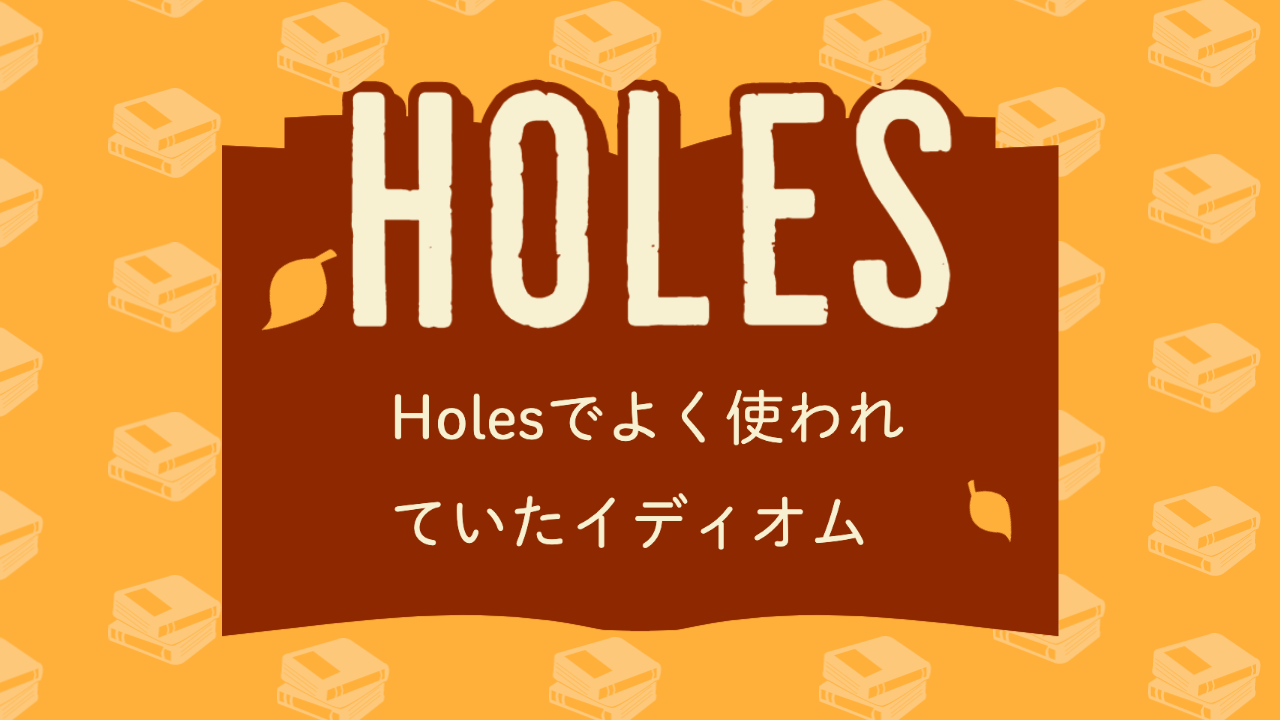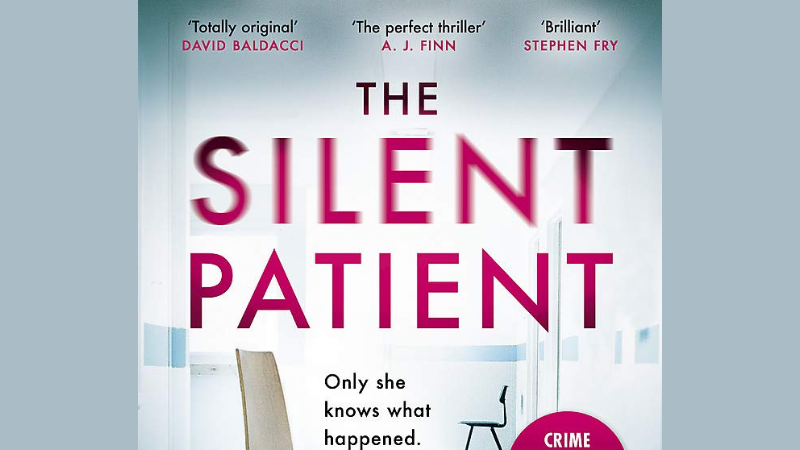久しぶりにHolesを読みました。(ちなみに今回で3度目)
Holesは私にとって初めて読んだペーパーバックであり、洋書を読むことの面白さを教えてくれた本でもあります。ストーリーもほんとによく出来ており、何度読んでも楽しめます。
今回は、そんなHolesの中で意味を理解することが難しい句動詞・コロケーション・イディオム、いろんな言い方がありますが、要は組み合わせで特殊な意味を持つ表現を紹介したいと思います。
- Holesに出てくる知っておきたい英語表現
- for the life of me(どうしても)
- just as well(かえって好都合だ)
- pretend otherwise (そうじゃないふりをする)
- make the most of〜(〜を最大限に活用する)
- get the better of〜(〜に勝つ、〜を負かす)
- pay to do(〜して損はない)
- see to it that〜(〜するよう取り計らう)
- little more than〜(ほとんど〜も同然)
- take credit for 〜(〜を自分の手柄にする)
- when it come to〜(〜のことになると、〜に関しては)
- get by on〜(〜でどうにかやっていく)
- have it in for〜(〜を目の敵にする)
- Kindle版を読んでみよう
Holesに出てくる知っておきたい英語表現
for the life of me(どうしても)
As he watched the boy turn and walk away, he couldn’t for the life of him figure out why anyone would want to be called Armpit.
Sachar, Louis. Holes (p.20). Random House Children’s Books. Kindle 版.
その少年が向きを変えて歩き去っていくのを見ながら、彼はどうしても脇の下と呼ばれたい人がいることがわからなかった。
I couldn’t understand what she said.(彼女の言ったことが理解できなかった)
I couldn’t for the life of me understand what she said.(彼女の言ったことがどうしても理解できなかった)
挿入される位置から考えて、副詞句として扱われるようですね。最初はcanのあとにいきなりforが来るので戸惑いました。

まさか「脇の下」と呼ばれたがる人がいるなんて想像もできなかったでしょうね。
可愛そうなStanley 🥲
just as well(かえって好都合だ)
He never managed to use his bar of soap, which was just as well, because he wouldn’t have had time to rinse off the suds.
Sachar, Louis. Holes (p.21). Random House Children’s Books. Kindle 版.
彼は何とかして石鹸を使うことはしなかったが、それはかえって好都合だった。彼には石鹸を洗い流す時間など無かっただろうから。
just as well はかえって好都合な、~しておいてよかったといった意味で使われます。
pretend otherwise (そうじゃないふりをする)
これは熟語というよりotherwiseの使い方にあたると思うのですが、わかりにくい表現だったので追加しました。
The piles of dirt were outside his five-foot circle, but he could see he was going to run out of room. Still, he pretended otherwise and kept adding more dirt to the piles, piles that he would eventually have to move.
Sachar, Louis. Holes (p.34). Random House Children’s Books. Kindle 版.
土砂の山は穴の外にあったが、彼にはやがて場所を埋め尽くしてしまうということが見て取れた。それでも、彼はそうではないフリをして(気づかないふり)、最終的には動かすしかなくなる土砂の山を積み上げ続けた。
文頭のStillは接続詞「それでも」の意味。
make the most of〜(〜を最大限に活用する)
After all, you only have one life, so you should try to make the most of it.”
Sachar, Louis. Holes (p.57). Random House Children’s Books. Kindle 版.
結局の所、人生は一度しかない、だからそれを最大限に活用しようとするべきなんだよ。
get the better of〜(〜に勝つ、〜を負かす)
His curiosity had gotten the better of him.
Sachar, Louis. Holes (p.60). Random House Children’s Books. Kindle 版.
彼の好奇心が勝ってしまったのだった。
pay to do(〜して損はない)
For once in his life it paid to be overweight.
Sachar, Louis. Holes (p. 28). Random House Children’s Books. Kindle Edition.
彼の人生で一度だけ、太っていたことで得をした(損しなかった)
see to it that〜(〜するよう取り計らう)
The Warden saw to it that nobody in Group D was ever thirsty.
Sachar, Louis. Holes (p. 70). Random House Children’s Books. Kindle Edition.
ワーデンはグループDで誰も喉が渇かないように取り計らった。
little more than〜(ほとんど〜も同然)
The other bodies in the room were little more than bags of flesh and bones, dumped across broken chairs and couches.
Sachar, Louis. Holes (p. 72). Random House Children’s Books. Kindle Edition.
その部屋にいた他の人の体は、ほとんど骨と肉の袋も同然で、壊れた椅子やソファの上に投げ出されていた。
take credit for 〜(〜を自分の手柄にする)
Confused, Stanley looked around—from Magnet, to Armpit, to Zigzag, to Squid. None of them took credit for it.
Sachar, Louis. Holes (p. 94). Random House Children’s Books. Kindle Edition.
混乱しながらStanleyは周りを見回した。誰もそれを自分の手柄だとするものはいなかった。
when it come to〜(〜のことになると、〜に関しては)
He’d learned not to doubt him when it came to math.
Sachar, Louis. Holes (p.131). Random House Children’s Books. Kindle 版.
彼は、数学に関しては彼を疑ってはいけないと学んでいた。
get by on〜(〜でどうにかやっていく)
After having to get by on less water for a week or so, Stanley now felt like he had all the water he could want.
Sachar, Louis. Holes (p.131). Random House Children’s Books. Kindle 版.
少ない水でどうにかやっていくしかなかった1週間が過ぎた後、スタンレーは今では欲しい水がすべて手に入ったような気分だった。
have it in for〜(〜を目の敵にする)
Stanley didn’t know why Mr. Pendanski seemed to have it in for Zero.
Sachar, Louis. Holes (p.138). Random House Children’s Books. Kindle 版.
スタンレーは、なぜペンダンスキーさんがゼロを目の敵にするのかわからなかった。



コメント